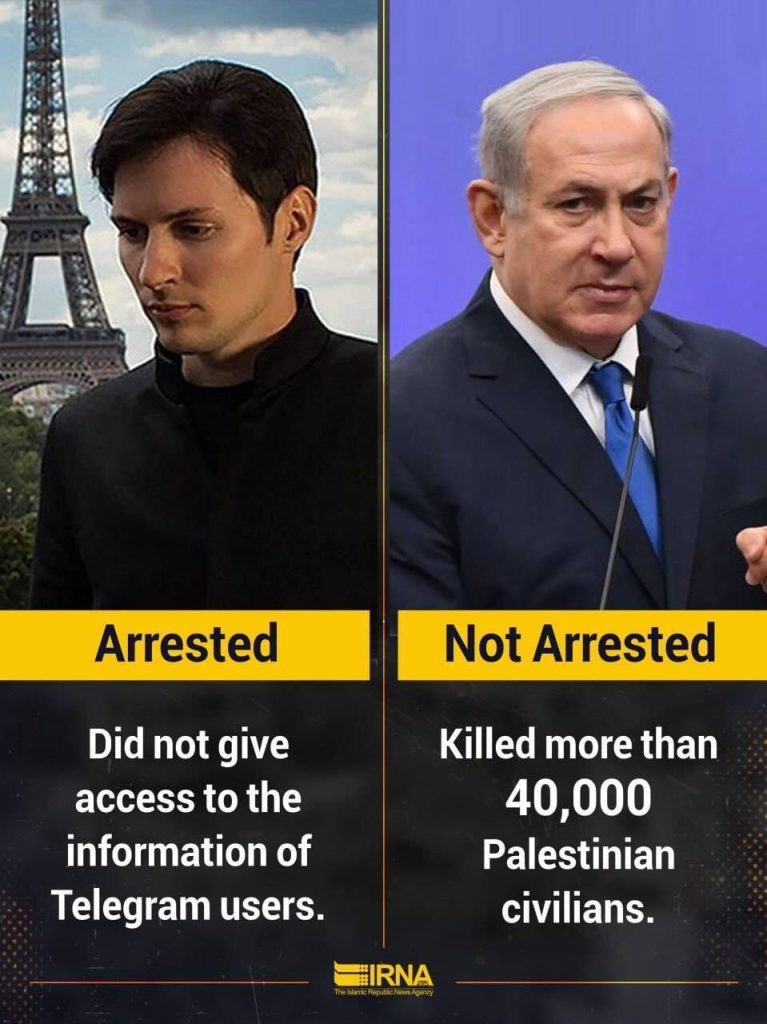
In a world where justice is often unevenly distributed, it’s easy to feel disillusioned by the seeming inconsistencies in how different individuals are held accountable for their actions. Recently, the arrest of Pavel (if we’re referring to a specific individual, let’s assume he is a political figure or activist) has sparked outrage among those who see it as a stark contrast to the treatment of more powerful leaders, such as Israeli Prime Minister Benjamin Netanyahu, who has been implicated in actions leading to the deaths of thousands of Palestinians.The Case of PavelPavel’s arrest, which might be related to political dissent, activism, or a controversial stance, represents a broader trend of silencing or punishing individuals who challenge the status quo. These cases often resonate deeply with people who feel that the global justice system disproportionately targets those with less power while allowing those with greater influence to evade accountability. If Pavel was arrested for his beliefs or actions that were in opposition to a powerful regime, it raises questions about the true nature of freedom and justice in our world today.Netanyahu and the Israeli-Palestinian ConflictOn the other hand, Benjamin Netanyahu has been a central figure in the Israeli-Palestinian conflict, a decades-long struggle marked by profound suffering on both sides. The conflict has resulted in significant loss of life, particularly among Palestinians, and has been a source of international controversy and debate. Netanyahu’s policies, including military actions in Gaza and the West Bank, have been condemned by many as disproportionate and have led to the deaths of thousands of Palestinians.Despite these serious accusations, Netanyahu has remained a prominent political figure in Israel, serving multiple terms as Prime Minister. His actions, while criticized globally, have largely gone unpunished, at least in the legal sense, within the context of international law. This perceived disparity between his actions and the lack of legal consequences highlights a larger issue in international justice systems, where powerful leaders are often shielded from the full force of the law.The Injustice of Disparate TreatmentThe disparity in treatment between individuals like Pavel and leaders like Netanyahu illustrates a troubling reality: those with power and influence often navigate legal and political systems in ways that protect them from the consequences that others might face for lesser actions. This is not unique to the Israeli-Palestinian conflict; it’s a pattern seen worldwide, where leaders responsible for significant human rights violations often escape accountability due to political alliances, economic interests, or the complexities of international law.Reflecting on JusticeThese events force us to confront uncomfortable questions about the nature of justice in our world. Why do some people face the full weight of the law while others seem to be above it? How can we ensure that those who commit serious crimes against humanity are held accountable, regardless of their status or power?To move towards a more just world, it’s essential to advocate for stronger international legal frameworks that can hold leaders accountable for their actions. This includes supporting institutions like the International Criminal Court (ICC) and pushing for reforms that reduce the influence of politics in judicial decisions. Additionally, raising awareness and fostering global solidarity are crucial in ensuring that the voices of the oppressed are heard and that justice is pursued without fear or favor.ConclusionThe arrest of Pavel and the lack of accountability for Netanyahu underscore a significant issue in global justice: the uneven application of the law based on power and influence. As global citizens, it’s our responsibility to call for greater transparency, fairness, and accountability in our legal and political systems. Only by doing so can we hope to create a world where justice is truly blind, and where all individuals, regardless of their position, are held to the same standard.This reflection is not just about Pavel or Netanyahu; it’s about a broader need to address the systemic inequalities that allow some to suffer the consequences of their actions while others remain untouchable. As we continue to witness these disparities, it’s crucial to remain vigilant, informed, and committed to the pursuit of justice for all.